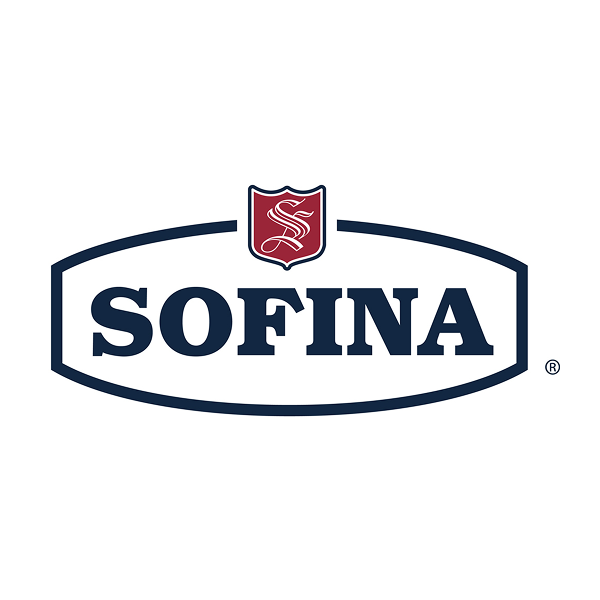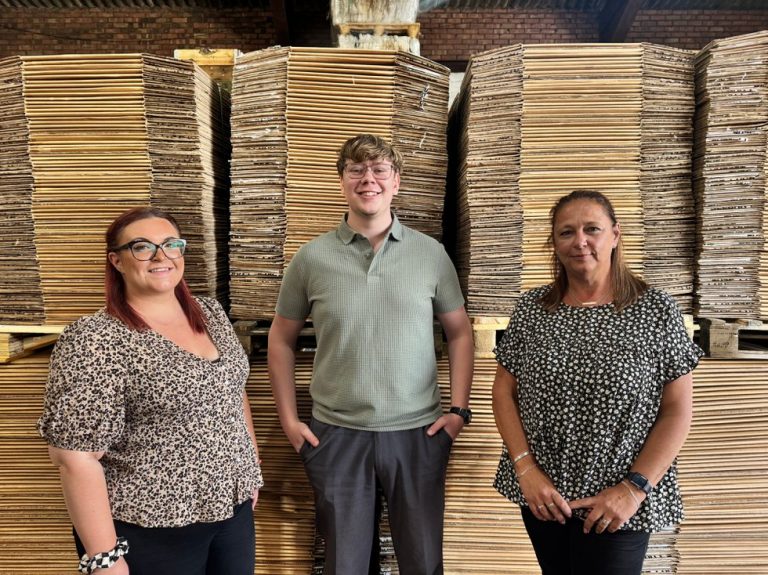Hull occupational health services provider expands with acquisition
New initiative to connect Sheffield’s creative talent with industry employers
The Sheffield College has launched a new initiative aimed at strengthening the city’s creative industries by connecting students with local employers. The scheme, named Sheffcol Creates – The Creative Academy, is designed to bridge the skills gap in Sheffield’s growing creative economy by providing students with hands-on industry experience.
Sheffield’s creative sector plays a crucial role in the local economy, generating nearly £1 billion annually and providing approximately 9,000 jobs across a wide range of fields. This includes design, digital marketing, film, photography, media production, and the performing arts. The new project aims to meet the growing demand for skilled workers in these industries by providing a collaborative approach to education.
Each year, The Sheffield College trains over 1,000 students in creative disciplines, including art and design, media, and performing arts, through a mix of diplomas and degree-level qualifications. Sheffcol Creates invites employers to participate in the curriculum actively, providing opportunities for mentorship, live briefs, and industry placements, among other forms of engagement.
The project’s official launch event was held at 99 Mary Street in the Cultural Industries Quarter, with key figures from the Sheffield Chamber of Commerce, Sheffield City Council, and the college in attendance. This initiative marks a significant step towards cultivating a pipeline of talent for Sheffield’s creative sector and ensuring its continued growth.
Sofina Foods expands footprint with acquisition of Finnebrogue
Sofina Foods has strengthened its market position by acquiring Finnebrogue, a family-owned food manufacturing company based in Northern Ireland. Founded in 1991, Finnebrogue employs approximately 1,200 people across four advanced production sites in County Down. The company is known for its range of products, including outdoor-bred pork, sausages, rashers, ham, and plant-based alternatives.
This acquisition aligns with Sofina Foods’ ambitious growth strategy. The company, already a major player in the seafood and pork sectors, operates extensively across the UK and Europe. Its seafood division, which includes the Young’s brand, is the largest provider of chilled and frozen products in the UK and holds significant market share in Germany and France. Sofina Foods Europe now employs over 9,000 people across 27 sites following the acquisition.
Finnebrogue’s operations will complement Sofina’s existing distribution network and further enhance its portfolio of sustainable, high-quality food products. The integration of Finnebrogue’s expertise supports Sofina’s strategic expansion across Europe.
The transaction was managed by Sofina’s in-house teams with external support from PWC, Taylor Wessing, Tughans LLP, Ashurst, and Tetra Tech. Finnebrogue was advised by Piper Sandler, Carson McDowell, and EY.
Recognise Bank completes £1.79m bridging loan for Lincolnshire developer
Pension reforms risk higher prices, fewer jobs and slower growth, warns FSB
- Phase two of the Pensions Review to explicitly examine how workplace pension changes impact small employers and learn from how auto-enrolment has been rolled out until now. The review must look closely at the financial and admin burden on small businesses, including the cost of advice, running payroll, and getting to grips with the rules before bringing in any new proposals.
- Ministers to commission a full cross-cutting economic assessment before any changes to pension rules are made, which includes the impact of recent rises in National Insurance and the National Living Wage, to ensure small firms are not hit with unaffordable costs or forced into tough choices like raising prices or cutting jobs. Last November, the Labour Government said it would only make changes to auto-enrolment if the impact on businesses was fully considered.
- No changes be made to the earnings threshold, no increase to employer contributions and no lowering of the age limit before the economic assessment is complete.
- The Government to convene regulators, including The Pensions Regulator and the Financial Conduct Authority, and industry stakeholders, to simplify pension rules and provide clearer guidance for small employers, reducing complexity and unnecessary admin. This would be a pro-growth, pro-employment move.
- When considering pensions adequacy, the Government should look beyond just increasing contributions – considering scheme performance, investment returns and the real-world impact on small employers and employees. Poor fund performance leading to lower pensions later in life should not be masked by simplistic debates on contribution levels.
Government steps in to support at-risk jobs following refinery insolvency
The UK government is stepping in to support the continued operation of the Prax Lindsey Oil Refinery in Immingham, North East Lincolnshire, after its owner went into administration, putting 420 jobs at risk. Prax Group, which acquired the refinery from Total in 2021, filed for insolvency last Sunday, prompting concerns from union representatives that as many as 1,000 jobs, including those of contractors and supply chain workers, could be affected.
The government has allocated funding to the official receiver to ensure the refinery’s safe operation. The Department for Energy Security has confirmed the refinery suffered losses of approximately £75 million from the 2021 acquisition to February 2024. Despite reassurances from Prax that no immediate closure was imminent, the company shifted its position last week, stating that it could no longer continue as a going concern.
Energy Minister Michael Shanks criticised Prax’s lack of transparency about its financial gap and its failure to cooperate in finding a solution. The government is now looking for potential buyers for the refinery and other uses for the site if a sale cannot be secured. The government has pledged to maintain energy supplies and protect the local community while supporting affected workers.
Trade unions, including Unite, are calling for immediate action to protect jobs and ensure the refinery’s continued operation. Concerns have been raised about the long-term future of the site, which is strategically important for both fuel production and local employment.
York and North Yorkshire launch survey to boost creative economy
A new survey aims to provide valuable data on the creative economy in York and North Yorkshire. Conducted by the York and North Yorkshire Combined Authority in partnership with the University of York, the Creative Economy Census targets over 1,500 creative businesses, as well as freelance and self-employed professionals in fields like advertising, design, film, music, publishing, and IT.
The survey will collect insights on the role of creative professionals, funding needs, barriers to growth, and required support services. The results will shape a regional Creative Industries Strategy, focused on fostering growth and making York and North Yorkshire a more attractive destination for creative talent.
This initiative is part of the wider One Creative North project, which aims to boost the region’s creative sector, identified as a high-growth area by the Combined Authority. The findings will inform future funding and support decisions, ensuring that creative professionals in the region have the resources they need to thrive. The survey takes an average of 20 minutes to complete, with both mandatory and optional sections.
Trial to improve rail travel for blind passengers in West Yorkshire
A new trial is set to enhance the travel experience for blind passengers in West Yorkshire. Publicly-owned train operators, in collaboration with West Yorkshire Combined Authority and Network Rail, are testing a new approach to make it easier for individuals with a blind person’s travel pass to use automated ticket gates at regional stations.
Currently, blind passengers holding an English National Concessionary Travel Scheme (ENCTS) pass can travel for free on LNER, Northern, and TransPennine Express services, but they have faced challenges with automated ticket gates. Instead of passing through barriers independently, they have had to seek assistance from station staff.
This trial aims to address that issue. Ten participants will receive a temporary West Yorkshire travel pass (MCard) to access automated ticket gates without requiring staff support. The initiative, which is based on feedback from blind passengers, runs for three months starting from 1 July, at key stations including Bradford Interchange, Huddersfield, Leeds, and Wakefield Westgate.
The trial is designed to provide blind passengers with greater independence while maintaining support from station staff for those who need it. The hope is that this trial will lead to permanent changes, allowing blind passengers more control over their travel experience.
Reuseabox expands operations and workforce to meet growing demand for sustainable packaging
Following its recent relocation to a 78,000 sq. ft. headquarters in North Hykeham, Lincoln, Reuseabox has made key strategic hires, expanding its workforce to 20 employees. This move comes as part of the company’s ongoing growth to address the increasing demand for sustainable packaging solutions.
The new hires include Joanne Hunt, appointed Factory Manager. With over 36 years of experience in operations and logistics, she will oversee production processes and help optimise warehouse strategies as the company scales its operations. Additionally, Rebecca Wright has been brought in as National Account Manager, bringing ten years of experience in customer service and account management. Her role will focus on cultivating strong relationships with both new and existing customers, facilitating the transition to reusable packaging solutions.
Blair Simpson joins the sales team as a Sales Apprentice, beginning his apprenticeship this September at Lincoln College. With prior experience in B2C sales and telesales, Blair is eager to advance his skills within B2B sales at a purpose-driven company like Reuseabox.
These hires come after the company secured its first permanent base in Lincoln, marking a key milestone in its 10th anniversary year. With a growing capacity to meet demand, Reuseabox is committed to providing businesses with cost-effective, sustainable packaging solutions while contributing to local job creation and sustainable growth.
Waste site to close over environmental hazards
A planned extension for a waste recycling facility in South Elmsall has been blocked following complaints from over 400 local residents about a “putrid stench.” Wakefield Council rejected the proposal to keep the Hacking Lane site operational for an additional 10 years.
The Environment Agency (EA) is pursuing enforcement action against the operator, Minore (also known as Mineral Processing Ltd), after a planning inspector found hazardous materials on-site that posed health risks. The EA’s decision follows a public inquiry where the operator’s appeal was dismissed. The site’s pollution has been linked to foul odours, dust, and litter, with significant concerns over local watercourses, including Frickley Beck.
Minore has been instructed to remove approximately 180,000 tonnes of material and halt further waste dumping. A notice issued by the EA will take effect on 4 July, revoking the operator’s permit. While the company plans to repurpose the site into a country park, including a wildflower meadow and wetland, its current activities are under close scrutiny. The local community is hopeful for lasting resolution but remains cautious.












